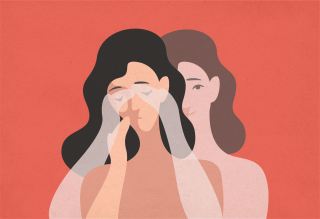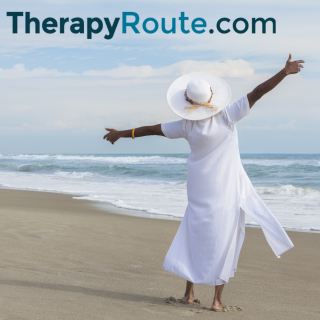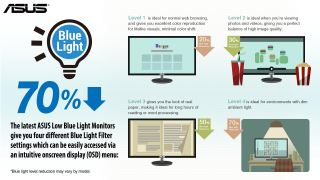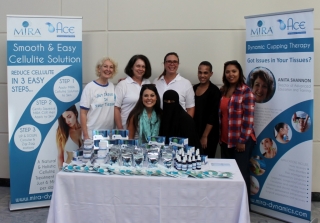South African mental health support platform launched
A new online platform designed to make mental health support and therapy accessible to as many people as possible has been launched in South Africa at the start of the country’s Mental Illness Awareness Month in July.
Called Obuntu (www.obuntu.co.za), it was developed by IT entrepreneur Pieter Oosthuizen to provide individual and group support for a wide range of conditions and experiences ranging from addiction recovery, grief and trauma counselling to eating disorders and bipolar support. Personal growth, emotional intelligence and life coaching is also provided.
Oosthuizen says the idea for the platform was inspired by the experience of his sister, Anelia, who has long waged a personal battle with depression and anxiety.
“Getting the help and support you need for any mental health condition is never easy, even in the best of times. The benefit of joining a support group has been widely recognised by mental health professionals around the world. However, the COVID-19 pandemic and lockdown has made joining a support group even more difficult while the need has never been greater,” he says.
A survey conducted by the South African Depression and Anxiety Group (SADAG) in April last year found that depression and anxiety reached record highs during the early days of the COVID-19 lockdown with 59% of survey participants previously diagnosed with a mental health condition reporting that the pandemic had exacerbated an existing crisis.
“Working with my sister, we started developing a platform that would enable anyone wanting to join any type of support group for a mental health condition or for life coaching generally to do so in a way that’s convenient, secure and affordable. It has also been designed to protect their privacy by allowing them to hide their identity from the host and other group members should they choose to do so,” Oosthuizen adds.
The credentials of all therapy providers and coaches – hosts – are carefully checked before being onboarded to the platform and allowed to take on group members or individual clients. This includes verifying their qualifications and/or registration with their relevant professional or statutory body such as the Health Professions Council of South Africa. “Deciding to join a therapy session isn’t always an easy decision, albeit a very important one. With our online groups, users can subscribe to a group and join as many of the available sessions as they like. The nature of each group, and the content of each session, and the cost to sign up, is clearly set out on the Obuntu site,” Oosthuizen explains.
The 60-minute sessions are conducted via Zoom or Google Hangouts, with the number of participants for each group session determined by the host and clearly indicted in the group profile.
“We have also made it easy for hosts to focus on what really matters to them – helping clients – with built-in features that enable them to remain in full control of their schedules and to communicate with their groups quickly and easily. Approved hosts simply create their groups, add sessions, and start helping their members.”At present, Obuntu is only available on PC, but apps for iOS and Android are in the process of being developed.
“While the platform is currently only geared to supporting South African-based therapists and coaches, our goal is to roll it out to the rest of Africa and thus bring mental health support to people across the continent where the need is enormous,” Oosthuizen concludes.
-- ENDS --
Issued by: Obuntu.co.za
For further information, contact:
Anelia Oosthuizen
Phone: 010 448 1106
Email: This email address is being protected from spambots. You need JavaScript enabled to view it.
TherapyNow Online Counselling in South Africa (COVID-19)
TherapyNow brings accessible, affordable, discreet therapy to anyone located anywhere - online. Traditionally, individual therapy is expensive, requires time and is not accessible to everyone.
TherapyNow online counselling provides a variety of professional mental health services via any internet connection. We make it easy to get help when you need it most - so that anyone who struggles with life’s challenges can receive assistance anytime, anywhere and at an affordable rate.
TherapyNow's skilled and experienced Therapists have an integrated approach, using a variety of tools, services and evidence-based therapies that are designed specifically to support your personal growth journey as an individual.
At TherapyNow, we are passionate and compassionate professionals who care about your well-being. We're driven by the mission of helping more people to live a better life every day - even after just one session from us.
What is the difference between in-person and online therapy?
In terms of therapeutic benefit - none at all.
Online therapy has the benefit of being more affordable, flexible with scheduling, and accessible to those who live far away. Therapists are able to use chat services or video apps and conferencing websites extremely effectively with anyone located anywhere. Online therapy is more discreet and completely confidential.
A study done by Radcliffe found that both methods were equally effective at treating anxiety disorders and there were no significant differences when it came to depression symptoms or posttraumatic stress disorder (PTSD).
The most important aspect of either type of treatment will be how many sessions you attend and how much you invest in the process. This may be because research revealed that as an indicator of whether patients felt satisfied with their therapeutic experience afterwards.
What does Counselling help with?
Counselling is a process that helps clients safely address various feelings and issues, ranging from their low self-worth, anxiety and depression to relationships, trauma and substance misuse recovery.
When you're ready to make an appointment with a therapist, there are many ways to connect. Online therapy is done through video calling apps like Google Meet, Skype, Zoom or Whatsapp. Therapists and clients can adjust how appointments are planned and conducted based on their needs, meaning there’s no need to put up with problematic commuting or time out from work or other life obligations.
COVID19 and Remote Online Therapy
The coronavirus (COVID‐19) pandemic has confronted us with an unprecedented global challenge of psychological distress, alongside reduced access to therapeutic services such as the traditional face-to-face format (due to restrictions and self-isolation). This previously unimaginable set of circumstances provides an opportunity for online therapy to fulfil its potential in assisting with mental health needs to anyone located anywhere.
The early studies on the psychological impact of this virus, such as increased stress levels, fear anxiety, strong emotions like posttraumatic stress disorder (PTSD), substance use disorders and domestic violence; also have been shown to affect social support from friends or relatives. There is reduced support when people need it most - when they are feeling worried, lonely and afraid and they're not able to see loved ones in person.
TherapyNow online therapy is able to provide support for addictions for these deep issues with the help of skilled and experienced professionals. Therapists are trained to make you feel safe and comfortable from the first session and you will have a confidential space to express yourself, gain a new perspective and find a way forward.
Reach out today: https://www.therapynow.co.za/
Unique Hypnotherapy Masterclass on Addiction a First of its Kind
Pretoria, South Africa – Drug addiction in South Africa is twice the international norm and a major contributor to crime and early deaths. Hypnotherapy experts are addressing the issue of addiction with the introduction of a new masterclass to empower experienced hypnosis practitioners to become part of the solution.
Addiction takes many forms. Alcohol and cannabis are the two major addictions in South Africa, followed by cocaine, amphetamines, opioids, opiates and ecstasy. It is estimated that some 60% of all crimes committed in this country involve the use of substances. Cigarettes are another major addiction; with about 7 million South Africans over the age of 15 smoke some 27 billion cigarettes every year. Gambling and internet gaming have both been recognized as official addictions. Other compulsive habits such as shopping, sex, food, TV, and social media have not yet been peer reviewed, but are growing problems. It is expected that the Covid-19 pandemic will aggravate the problem and the United Nations is predicting a dramatic rise in addictions in the near future because of it.
Hypnotherapy has been scientifically proven as an effective method to both prevent and solve addictions, but has largely been ignored because of the many misconceptions that exist about hypnosis. This is a problem that the experienced and respected South African hypnotherapists Thomas Budge and Yvonne Munshi are determined to rectify. According to South African hypnotherapy guru Thomas Budge: “Addiction is one of the most feared aspects of the hypnotherapist’s practice, simply because they do not possess the in-depth knowledge and skills to successfully help their clients.”
Thomas has taken it upon himself to rectify this problem and share his knowledge built up over many years. Together with Yvonne Munshi, herself an expert in this field, they have written a book called Addiction: Between the Devil and the Deep Blue Sea. This work forms the basis of the masterclass that will address the neurobiology of addiction, the rules of the mind, and effective and tested methods to address this growing problem. Registrations are open for suitably qualified and experienced hypnosis practitioners, whether they are working in the clinical or non-medical fields. This is the first course of its kind that will soon be presented around the world.
The masterclass will be held at Pretoria Ranch from 2 – 6 September 2021. It is limited to a maximum of 18 participants who will benefit from the expert information that will expand their practice. Those who have completed the course will become part of an online community where they receive support and regular updates. A referral system will be implemented to ensure that clients who need these specialized services get to the right practitioner.
This masterclass is a unique opportunity for hypnotherapists to gain expert information, which includes the 450-page course book Addiction: Between the Devil and the Deep Blue Sea. Bookings are now open on http://hypnosismasterclass.pro
TherapyRoute.com, a proudly South African online mental health resource, improves access to mental health services.
TherapyRoute.com, a proudly South African online platform, empowers visitors to find psychologists and other mental health service professionals and providers like social workers, family therapists, counselling services, and community clinics quickly.
This innovative clinician run directory and mental health resource offers free listings to all qualified mental health professionals, organisations, and service providers.
Today, an increasing number of people turn to the internet to find psychologists and other mental health services. Apart from convenience, this frequently helps people overcome any embarrassment they feel by allowing them to learn more about a professional, or service, before making the call.
South Africa continues to struggle with the legacy of apartheid, and mental health services are no exception. It can be challenging to locate a professional who shares your cultural background or language. Similarly, fears of being misunderstood and unfairly discriminated against often act as barriers to entry.
TherapyRoute.com includes features that help address such challenges.
Some Examples:
Easy to use search. Nearby providers appear automatically
Filter results by identity (Black, LGBT+, Nonbinary, Female...), language (isiZulu, Afrikaans...), issue (depressions, anxiety, relationships...), and more
Find online clinicians when no nearby results are found
Thousands of qualified clinicians and providers to choose from
The following core values guide the direction of the platform.
1. Improve access to mental services
TherapyRoute.com improves access to services by innovating tools to empower visitors to find the help they need.
Thanks to a team of volunteers, the database includes many verified community clinics and hospitals. The intention is to link anyone in search of therapy or help, be they rich or poor, with a service that meets their need and means.
Many of the low/no fee listings are included in the following city-specific 'How to find a therapist' guides.
How to find a therapist in Cape Town
How to find a therapist in Durban
How to find a therapist in Johannesburg
How to find a therapist in Pretoria
2. Promote awareness of mental health and talk therapy
TherapyRoute.com equips professionals to publish mental health and therapy-related writing online. The sites growing library of excellent articles promotes awareness of the value of talk therapies that are proven to be effective, relational, and which respect human complexity.
3. Facilitate professional and service visibility
TherapyRoute.com enables qualified mental-health professionals to create a website and represent the services they provide.
The platform is open to all qualified mental health professionals, clinics, counselling centres, rehabilitation programs, and group practices. Private practice and community services are welcome.
Are you looking for a therapist or a mental health service?
Visit TherapyRoute.com to find your best fit therapist now.
Are you a qualified mental health service provider?
Visit TherapyRoute.com and list your service for free.
Do you run a resource page?
Add TherapyRoute.com and help people find the mental health services they need.
South African mental-health services providers are invited to help open access to their services by registering with TherapyRoute.com at no cost.
TherapyRoute.com improves access to services by...
- Including community, private, public, and NGO services.
- Automatically displaying the nearest registered services providers to website visitors.
- Displaying providers who consult online (when no nearby ones are listed).
- Offering a search function designed with the public (not professionals) in mind.
- Enabling providers to accurately, represent their services, create a website, and publish informative content online.
- Promoting, sourcing, and distributing content that increases public and professional awareness of the benefits of psychotherapy and mental health.
Visit the home page www.TherapyRoute.com and click the relevant word on the top of the screen, e.g. 'Therapist' or 'Clinic/Org
Vincenzo Sinisi (Founder) on 0837420114 or via This email address is being protected from spambots. You need JavaScript enabled to view it.
TherapyRoute.com is an ideologically driven platform intent on raising awareness of, and access to, psychotherapy and other mental health services. The service is unmonetized and aims to achieve long term sustainability via advertising sales.
ASUS gets experts to weigh in on Ergonomics
Johannesburg, South Africa – If your job requires you to sit at a desk behind a computer or laptop, this article is for you. We all know that we have to sit properly, a certain distance from your screen and type at a specific angle. It sometimes seems impossible to have an ergonomic workstation due to space and financial restrictions. However, by adapting to your environment and making changes you will realise the drastic effect it can have on your life. After all, you probably spend more time in your office than out of it. ASUS South Africa decided to get the insights of various industry experts to share some practical tips and tricks for computer users (even those who don’t use ASUS products):
- Eyes and View-Points
First and foremost, if you wear glasses or have glasses to wear behind a computer screen, wear them! Often we sit behind our screens for long periods of time causing us to blink less which leads too dry, itchy and scratchy eyes that feel like raisins.
Try to position yourself between 40 and 76 centimetres away from your screen (most users find it most comfortable to sit between 50 and 65 centimetres). Among many things this will help your eyes maintain their blink rate.
When positioning the monitor or screen, set it up on your eye level or slightly below your horizontal eye level. This can be done by purchasing an ergonomic stand. Alternatively, you could improvise and use phone books or reams of paper. Just make sure that the surface is stable and strong enough.
Pay special attention to the surrounding areas of your monitor or table, avoid spaces closes to windows and bright lights as this may cause distracting reflections and additional strain on your eyes.
"Not only are we more dependent on electronic devices but technology can also improve your quality in front of such a device. Anti-reflective lens coatings have been tried and tested and research shows that it can help to eliminate up to 80% of eyestrain and fatigue. Optometrists make use of the newest lens technology to ensure clear and comfortable vision in front of electronic devices", says Carina Janzen, Optometrist from De Jongh Optometry in Pretoria East.
- Seating and Posture
The chair that you sit on is just as important as the computer you use. When purchasing a new chair, always make sure that it is fully adjustable to ensure the support that you require. "It is important that the chair is the correct height relative to the desk", comments Tracey Palay from Ergotherapy. If purchasing a new chair is not an option, you could look at using an inflatable pillow or a towel roll which should provide you with lower back support when placed behind your lower back against the chair.
Position yourself behind your computer in such a way that your spine is able to align with a neutral posture (forward curve in the lower back and forward tilted pelvis), try to avoid leaning forward. Allow your shoulders to be relaxed and not hunched or rounded and your feet resting on the floor/ foot rest. Your elbows have to be close to your body (put away your wings), the ideal position for them is at a 90° bent angle with your wrists and hands remaining straight, forearms resting on the table (not the wrists). Avoid bending the wrists backwards too far when working on your keyboard and mouse.
It is important to consider your posture, as your body adapts to the position you spend your working day in and can have an effect on your wrists, elbows, shoulders, neck, upper back, lower back, gluteal area and lower limbs. Frequent positional changes are key to prevent adverse health effects and muscular weakness.
The therapists from Therapy In Action have been working in the Physical Therapy and Occupational Therapy industry for over 20 years and recommend that computer users pay special attention to the position of their upper back and neck, as poor posture can lead to trigger points, muscle imbalances and lack of stability, which can cause headaches, neck and shoulder pain. "We have noticed over the past year alone an increase of 8% in people complaining about neck tension headaches and upper back pain due to poor ergonomics", Liezet Basson, Partner and Senior Occupational Therapist with Therapy in Action added. - Sitting vs Standing
"Recent studies have shown that standing while working on your computer, have major health benefits. Standing facilitates a decrease in fatigue and musculoskeletal discomfort, especially in overweight office workers. The research has also shown benefits in heart function and blood sugar levels. Weakness and muscle imbalances develop according to your prolonged preferred postures, which can lead to discomfort and pain due to lack of optimal stability. Standing for the entire work day might also have some negative effects on your health, thus a healthy balance between sitting and standing is ideal where possible", added Therapy In Action. - Regular Breaks
It is recommended that breaks are taken every 30 minutes but sometimes it isn’t practical. Try to take your eyes off of the screen and let them rest on another focal point in the distance, like a watercooler in the office or the trees outside your window. If you’re able to get up from your desk try to walk around stretching you back, arms, neck, shoulders and legs at least once every hour or two as this will get the blood flowing again.
As with almost all aspects in life, there are various Apps that can be downloaded to remind you to take regular breaks. On Android there are a few apps like Take-a-Break or Water Drink Reminder.
Setting up an ergonomically friendly workspace is of benefit to the employee and employer, by reducing ergonomic risk factors costs can be reduced over time and employee productivity should increase. This will also show employees that their employers value their health and safety.
Yolandi Venter, ASUS’ Marketing Manager for System Products focusing on Sub-Saharan Africa, said that ASUS has a variety of products available which accommodate ergonomic needs. "Recently ASUS announced the ZenBook Flip UX360 and UX560 which feature a gently backlit keyboard with full size keys and long key travel for comfortable typing in any lighting condition. The large glass-coated touch pad allows smooth and accurate navigation", Venter added.
"All of our models come with some sort of ergonomic design. For example, all models come standard with ICeCool which keeps the palm rest of laptops and notebooks cooler than your body temperature", said Werner Joubert, Product Head (ACZA). "ASUS Monitors come standard with Eye Care technology which smartly adjusts the computer screen brightness based on the environment you are in. These monitors are designed to prevent symptoms of CVS (Computer Vision Syndrome). Symptoms include Headaches, Burning Eyes, Red Eyes, Eyes Strain and Fatigue, should you, a colleague or an employee have these symptoms its highly recommend to seek medical attention. Furthermore, the Monitors have Low Blue Light, are Flicker-Free, have Anti-Glare and are designed to meet ergonomic requirements", Joubert added.
ASUS South Africa would like to thank De Jongh Optometry, Therapy In Action and Ergotherapy for assisting in the construction of this story.
ABOUT ASUS
ASUS is a worldwide top-three consumer notebook vendor and maker of the world’s best-selling, most award-winning motherboards. A leading enterprise in the new digital era, ASUS designs and manufactures products that perfectly meet the needs of today’s digital home and office, with a broad portfolio that includes motherboards, graphics cards, optical drives, displays, desktop and all-in-one PCs, notebooks, netbooks, servers, multimedia devices, wireless solutions, networking devices, tablets and smartphones. Driven by innovation and committed to quality, ASUS won 4,368 awards in 2015 and is widely credited with revolutionizing the PC industry with its Eee PC™. ASUS has more than 17,000 employees around the globe with a world-class R&D team of over 5,500 engineers. Company revenue for 2015 was approximately US$14 billion.
REFERENCES:
- Thorp, A.A, Kingwell, B.A, Owen, N, & Dunstan, D.W. (2014). Breaking up workplace sitting time with intermittent standing bouts improves fatigue and musculoskeletal discomfort in overweight/obese office workers. Journal of Occupational and Environment Medicine (71) 765-771.
- Water, T.R & Dick, RB. (2014). Evidence of Health Risks Associated with Prolonged Standing at Work and Intervention Effectiveness. Journal of Rehabilitation Nursing. (40) 3: 148-165.
- Antle, D.M., Vezina, N. & Cote, J.N. (2015). Comparing standing posture and use of a sit-stand stool: Analysis of vascular, muscular and discomfort outcomes during simulated industrial work. Journal of Industrial Ergonomics (45) 98-106.
NOTES TO EDITORS
- ASUS Global Press Room: http://press.asus.com
- ASUS South Africa Facebook: https://www.facebook.com/ASUSza
- ASUS South Africa Twitter: https://twitter.com/ASUS_za.
Mother Cupper Leaves Her Mark On SA Massage Therapists
A small group of excited Cape Town based massage therapists recently attended a 2 day intensive Dynamic Cupping Therapy Massage Workshop held at the Sport Science Institute in Newlands. The workshop was conducted by USA Massage Hall of Fame inductee, Anita Shannon, often, endearingly referred to as the"MotherCupper" by thousands of students whom have had the privilege to work with and study her contemporary methods of a nearly 3000 year old alternative medicine tradition, cupping therapy, still prolific throughout the Middle East and Asia.
Anita Shannon is the recently appointed Director of Advanced Education and Training for MIRA Dynamics International, Director of Advanced Continuing Education (ACE), an NCBTMB Continuing Education provider established in 2001, she has presented countless workshops on ACE Massage Cupping™ and MediCupping™ at international locations since developing these brands of bodywork in 2002. Anita has published six articles on this subject in Massage Today, Massage Magazine and Les Nouvelles Esthetiques, along with publishing five educational videos, and is currently writing a book on VacuTherapies™.
With her vast knowledge and experience and her first visit to South Africa, Anita added much needed professional perspectives and years of accumulated wisdom to professionals in the sport, physio, massage therapy, alternative medicine, Chinese medicine and natural beauty industries. Anita said, "I am duly impressed by the professional caliber of the South Africans who attended and look forward to returning later this year. I understand that cupping therapy is relatively new here and I love teaching this wonderful, and quite frankly, necessary healing massage technique that would compliment any therapists practice."
"Dynamic Cupping Therapy is a holistic healing method based on Traditional Chinese Medicine, developed and researched by Anita along with MIRA Dynamics International and offers a natural alternative for relief, cure and solution to every day health and beauty problems." said Derrick Z. Venter, CEO of MIRA. "Essentially, I am hoping to see this exciting practice instituted by practitioners in the sport therapy, massage therapy, physio and health and beauty industries in SA.
"MDI is continuously developing, researching and disseminating best practices, new discoveries and educational materials and we are keen to collaborate with professionals and doctors respectively, we aim to have Dynamic Cupping Therapy accepted as an accredited educational program here in South Africa." Mr. Venter added.
"We would love to have a South African based Educator/Trainer on the MIRA team. He or she would receive extensive training from Anita and we invite interested and qualified people to contact us via our website or Facebook page". said Derrick Z. Venter.
MIRA SA is the distributor of MIRA Dynamics Professional Cupping Therapy Tools and complimentary products in South Africa and welcome inquiries from interested retail and wholesale partners.
NOTES FOR EDITOR
Anita is available for telephonic interviews and appearances.
Derrick is available for interviews and appearances.
Both can be contacted via email at This email address is being protected from spambots. You need JavaScript enabled to view it. or 021 433 1759






